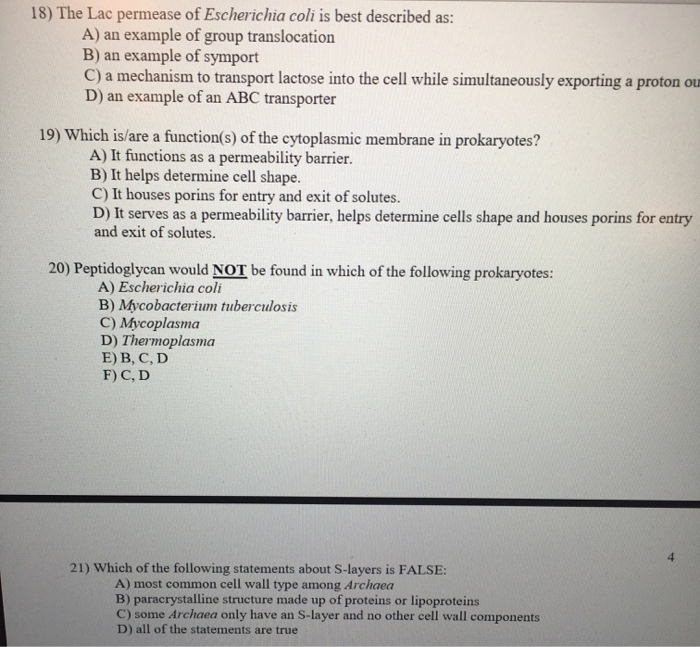Question: The Lac permease of Escherichia coli is best described as: an example of group translocation an e…

Show transcribed image text The Lac permease of Escherichia coli is best described as: an example of group translocation an example of symport a mechanism to transport lactose into the cell while simultaneously exporting a proton an example of an ABC transporter Which is/are a function(s) of the cytoplasmic membrane in prokaryotes? It functions as a permeability barrier. It helps determine cell shape. It houses porins for entry and exit of solutes. It serves as a permeability barrier, helps determine cells shape and houses porins for entry and exit of solutes. Peptidoglycan would NOT be found in which of the following prokaryotes: Escherichia coli Mycobacterium tuberculosis Mycoplasma Thermoplasma B, C, D C, D Which of the following statements about S-layers is FALSE: most common cell wall type among Archaea paracrystalline structure made up of proteins or lipoproteins some Archaea only have an S-layer and no other cell wall components l all of the statements are true
The Lac permease of Escherichia coli is best described as: an example of group translocation an example of symport a mechanism to transport lactose into the cell while simultaneously exporting a proton an example of an ABC transporter Which is/are a function(s) of the cytoplasmic membrane in prokaryotes? It functions as a permeability barrier. It helps determine cell shape. It houses porins for entry and exit of solutes. It serves as a permeability barrier, helps determine cells shape and houses porins for entry and exit of solutes. Peptidoglycan would NOT be found in which of the following prokaryotes: Escherichia coli Mycobacterium tuberculosis Mycoplasma Thermoplasma B, C, D C, D Which of the following statements about S-layers is FALSE: most common cell wall type among Archaea paracrystalline structure made up of proteins or lipoproteins some Archaea only have an S-layer and no other cell wall components l all of the statements are true



